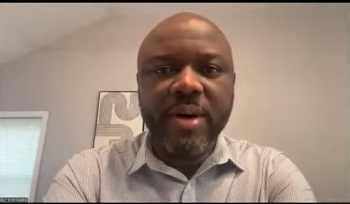In a significant development, Fitch Ratings has announced plans to move Ghana out of its current sovereign default status by July 2025. This marks a crucial step in the country’s economic recovery efforts, which have been severely impacted by rising debt levels, inflation, and a lack of foreign exchange reserves. Here’s a breakdown of what this means for Ghana and what it entails for the country’s future economic outlook.
Ghana entered a sovereign default status in 2024 due to its inability to service its external debt obligations. The country had been facing rising debt burdens after years of borrowing to finance development projects and support its economy, particularly amid the challenges brought on by the global COVID-19 pandemic, rising oil prices, and domestic policy missteps.
In December 2022, Ghana requested a debt restructuring program as part of its engagement with the International Monetary Fund (IMF), which ultimately agreed to provide a $3 billion financial support package for Ghana under a three-year extended credit facility. This support was designed to help stabilize the country’s finances, restore investor confidence, and restore growth.
Despite this agreement, Ghana’s sovereign debt rating from Fitch Ratings and other international agencies remained in default, as the country had to restructure its external debt, suspend interest payments, and seek debt relief through bilateral and multilateral negotiations.
Fitch Ratings, one of the major global credit rating agencies, has indicated that Ghana is on track to move out of sovereign default by July 2025. The plan includes several key steps, which are pivotal to stabilizing Ghana’s economy and restoring investor confidence:
As part of Ghana’s agreement with the IMF, the country has undergone a debt restructuring process that involves the reduction of outstanding debt and the extension of repayment terms to give Ghana some breathing space. This restructuring is crucial to easing fiscal pressures and is central to improving debt sustainability.
To restore investor confidence and stabilize the economy, Ghana has implemented a series of economic reforms, including fiscal consolidation, revenue mobilization, and expenditure cuts. The country is also looking to diversify its economy and reduce its reliance on external debt for financing.
Fitch’s forecast to remove Ghana from default is contingent on improving the country’s ability to meet debt service obligations. If Ghana continues with its fiscal reforms and sticks to the debt restructuring plan, it will gradually regain the capacity to service its external debt and move closer to a stable financial footing.
Fitch expects Ghana’s economic growth to pick up in the coming years, supported by reforms and a recovery in key sectors such as agriculture, mining, and energy. Growth will help boost government revenues and contribute to Ghana’s ability to service its debt.
One of the milestones to getting out of default is regaining access to international capital markets, which Ghana lost when it defaulted on its debt. Fitch’s outlook suggests that Ghana will be able to regain market access once its economic recovery takes root and the country demonstrates its ability to meet debt obligations reliably.
The move to take Ghana out of sovereign default will have several positive impacts.
The decision by Fitch to move Ghana out of default is a signal that the country is on the path to economic stability. It is expected to restore investor confidence in Ghana’s economy, which is crucial for attracting both foreign direct investment (FDI) and portfolio investment.
By exiting sovereign default, Ghana will gradually regain access to international financing sources, including capital markets and loans from international banks. This will allow the government to tap into much-needed funding for infrastructure projects and other development needs.
A successful recovery from default would likely lead to improvements in key economic indicators, such as inflation, currency stability, and external reserves. In turn, this could improve living conditions for Ghanaians, especially if inflation is brought under control and the cost of living is reduced.
With a successful restructuring and the eventual reduction in the national debt burden, Ghana will be in a stronger position to manage its debt more sustainably over the long term. This will help to prevent another crisis and enable the government to focus on development priorities.
The positive move to exit default will strengthen Ghana’s relations with international partners, including the IMF, World Bank, and bilateral creditors. This could lead to additional support and opportunities for collaboration on development projects.
Despite the optimism, Ghana’s path out of default is not without challenges. Several issues remain.
The government must ensure that political stability is maintained, especially as the country approaches general elections in December 2024. Political uncertainty could derail efforts to implement economic reforms and attract investment.
While Ghana is undergoing restructuring, the country must continue to focus on debt sustainability. It will need to generate sufficient revenues, control spending, and manage risks related to external factors like commodity prices or global inflationary pressures.
The reforms and austerity measures necessary to exit default could place significant pressure on Ghana’s vulnerable populations. The government must balance fiscal consolidation with social protection to prevent negative impacts on the most vulnerable sectors of society.
Fitch Ratings’ plan to move Ghana out of sovereign default by July 2025 represents a major step forward in the country’s economic recovery process. While challenges remain, the government’s focus on debt restructuring, fiscal reforms, and economic recovery has the potential to restore Ghana’s financial health and long-term economic stability.
If successful, Ghana’s exit from sovereign default will enhance its standing in the international financial community, improve investor confidence, and create a more sustainable foundation for growth. However, Ghana must continue to implement the necessary reforms, manage external shocks, and ensure that the benefits of recovery are shared broadly across society. Fitch Ratings has provided an optimistic update on Ghana’s progress toward exiting its sovereign default status, with an expectation that the country will complete its external debt restructuring by June 2025. This follows an ongoing process aimed at addressing Ghana’s growing debt burden and restoring its ability to service debt. Fitch also anticipates that the country will complete non-bond debt treatment by the end of this year, further supporting Ghana’s path to financial recovery.
Fitch shared these optimistic projections during a webinar on debt restructuring, where they discussed developments in several countries, including Ghana, Zambia, and Ethiopia.
Thomas Garreau, the Associate Director of Europe, Middle East, and Africa Sovereign Ratings at Fitch, outlined Ghana’s debt restructuring roadmap and provided insights on key milestones.
Fitch is optimistic that Ghana will complete its external debt restructuring by June 2025. This restructuring is a crucial part of the country’s efforts to regain financial stability and restore investor confidence. The process involves renegotiating the terms of external debt, reducing the overall debt burden, and extending repayment periods to ease fiscal pressures.
Non-bond debt refers to the country’s obligations to multilateral institutions, bilateral creditors, and other non-bond holders. Fitch expects that Ghana will finalize the treatment of this portion of its debt by the end of 2024. This will further help stabilize Ghana’s finances and ease the pressure on the government’s debt service obligations.
Ghana’s debt restructuring is part of the Common Framework, an initiative supported by the G20 and the Paris Club to help countries facing severe debt distress. According to Garreau, Fitch expects Ghana to complete the Common Framework restructuring by the first half of 2025, which would be a critical step toward restoring the country’s fiscal health. However, he noted that the 2024 elections in Ghana could cause some delays in the completion of the restructuring process, as political transitions sometimes affect the speed of economic reforms.
Ghana initiated its debt restructuring program in 2022 as part of a broader engagement with the International Monetary Fund (IMF). The IMF agreed to a $3 billion financial support package for Ghana to help stabilize the economy, which was in crisis due to unsustainable debt, high inflation, and currency depreciation.
The restructuring process involves renegotiating terms with external creditors, including bondholders, and agreeing to debt relief measures such as debt swaps, interest rate reductions, and extended repayment terms.
Fitch acknowledged that while the debt restructuring process is on track, the upcoming 2024 presidential elections in Ghana could cause temporary delays. Political uncertainty during election periods can sometimes slow down critical fiscal reforms and negotiations with creditors. However, Garreau emphasized that Fitch still expects the process to be completed in 2025, barring any unforeseen delays.
The overall goal of Ghana’s debt restructuring is to restore debt sustainability. By reducing the country’s debt obligations and extending repayment terms, the government will have more fiscal space to invest in key development areas and address urgent economic challenges such as poverty, unemployment, and infrastructure gaps.
Ghana’s debt-to-GDP ratio has been among the highest in sub-Saharan Africa, and reducing this burden is critical for improving the country’s credit rating and investment climate.
Once Ghana completes its debt restructuring, the country is expected to regain access to international financial markets. This will help the government raise funds for infrastructure projects and other development needs, which are crucial for long-term economic growth.
The restructuring will help reduce debt service costs, giving the government more room to focus on economic recovery, job creation, and poverty reduction. Fiscal consolidation efforts, such as reducing public sector wages and controlling government spending, will also play a significant role in restoring fiscal health.
With reduced debt pressures and potential access to new financing, Ghana can expect to see an improvement in its economic growth prospects. Key sectors such as agriculture, mining, energy, and manufacturing are expected to drive growth as the government focuses on diversification and job creation.
A successful debt restructuring and the eventual restoration of economic stability will have a positive impact on ordinary Ghanaians. If the government can manage inflation, reduce interest rates, and stabilize the currency, it could help ease the cost of living for the population, especially the most vulnerable groups.
While the forecast is optimistic, there are still challenges ahead. Political stability post-election, successful implementation of economic reforms, and managing external shocks such as global commodity price fluctuations or natural disasters will remain key factors in determining the success of Ghana’s recovery.
Fitch Ratings’ plan to move Ghana out of sovereign default by July 2025 reflects a strong belief in the country’s potential for economic recovery. The debt restructuring process, which includes the completion of external debt restructuring by mid-2025 and the non-bond debt treatment by the end of 2024, is crucial for improving Ghana’s fiscal position.
While the upcoming 2024 elections may introduce some delays, the overall outlook is positive, if Ghana continues its efforts to restore debt sustainability and pursue economic reforms. With the successful completion of these processes, Ghana can look forward to a more stable economy, improved growth prospects, and greater investor confidence.
In a significant move toward stabilizing its debt situation, Ghana has made notable progress in its debt restructuring efforts. The country reached an important agreement with the Official Creditor Committee (OCC) in January 2024 on the parameters for official debt treatment. Additionally, the Eurobond exchange was successfully carried out in October 2024, marking a crucial step in addressing Ghana’s external debt challenges. These developments are expected to play a pivotal role in reducing Ghana’s debt burden and improving its fiscal health in the coming years.
In January 2024, Ghana reached an agreement with the Official Creditor Committee (OCC), which consists of the country’s bilateral creditors (including countries and multilateral institutions like the IMF and World Bank). The agreement set the terms for official debt treatment, which is expected to provide significant relief to Ghana in terms of reduced repayment obligations and extended debt maturity periods.
This agreement is part of Ghana’s broader debt restructuring strategy, aimed at restoring fiscal stability and ensuring the country’s long-term ability to service its debt.
October 2024 saw the completion of the Eurobond exchange in which Ghana restructured a substantial portion of its external debt. A total of US$14.2 billion worth of Eurobonds, including Principal Debt Instruments (PDIs), were restructured. Eurobonds are sovereign bonds issued by the government on international capital markets, and restructuring these bonds is a key element of Ghana’s debt relief strategy.
The restructuring included a haircut on the debt, which effectively reduced the overall debt burden. The haircut represented 6.2% of Ghana’s Gross Domestic Product (GDP), which is a significant reduction in the country’s debt obligations.
As part of the debt restructuring, interest payments on Ghana’s external debt were also reduced. These reductions are expected to significantly ease the fiscal pressures on the government. The interest payments will be reduced by 8% of projected government revenue in 2024,5% in 2025,4% in 2026
These reductions in debt servicing costs will free up much-needed resources for the government to invest in economic recovery, social programs, and infrastructure development.
The Eurobond exchange and the agreement with the OCC have significantly reduced Ghana’s debt burden. The 6.2% GDP haircut translates into a reduction of the overall debt stock, which is crucial for improving the country’s debt sustainability and restoring confidence in its ability to meet future obligations.
These moves are expected to ease debt service pressures, allowing the government to allocate resources to other priority areas like education, healthcare, and infrastructure development.
By restructuring its debt and reducing interest payments, Ghana has gained additional fiscal space. The government will now have more room to manage its budget deficits and reinvest in the economy without being overwhelmed by debt service costs.
This fiscal space is also crucial for stabilizing the economy, managing inflation, and avoiding the need for further austerity measures, which could hurt vulnerable populations.
The reduced debt service costs—8% of revenue in 2024, 5% in 2025, and 4% in 2026—will have a significant positive impact on the country’s public finances. With lower debt servicing costs, Ghana can redirect funds toward economic development and poverty alleviation initiatives, which are critical for improving the livelihoods of Ghanaians.
The savings from reduced debt payments will also contribute to increased government revenue, as the country will no longer be diverting as much of its earnings toward servicing external debt.
The successful completion of the Eurobond restructuring and the agreement with the OCC will likely enhance investor confidence in Ghana’s ability to manage its finances. As a result, the country could see an improvement in its credit ratings, which would allow it to regain access to international financial markets in the future, should it need to raise capital.
Investor confidence is also vital for attracting foreign direct investment (FDI), which is critical for job creation, economic growth, and the diversification of Ghana’s economy.
While the debt restructuring represents a major achievement, several challenges and opportunities remain.
Ghana will hold presidential elections in December 2024, and political stability will be crucial for ensuring the continuation of the economic reforms. Political uncertainty during the election year could impact the pace of the recovery process and affect investor sentiment.
However, Ghana has demonstrated resilience in the past, and there is optimism that the country’s debt relief efforts will continue post-election, regardless of the political outcome.
Ghana’s ability to sustain economic growth will depend on its ability to diversify away from commodity-dependent sectors like oil, gold, and cocoa. Expanding into sectors such as manufacturing, technology, and agriculture will be key to creating long-term economic resilience.
Youth employment and the creation of job opportunities in emerging industries will be crucial for the country’s development and for alleviating poverty.
The government must continue to prioritize social welfare programs as it emerges from debt restructuring. With more fiscal space, Ghana will have the opportunity to improve public services, healthcare, education, and infrastructure to benefit all citizens, especially the most vulnerable.
Debt sustainability will remain a priority in the coming years, as Ghana continues to balance its fiscal and economic policies to ensure that the country does not fall back into debt distress.
Ghana’s progress in debt restructuring—including the Eurobond exchange and the official debt treatment agreement with the OCC—marks a crucial step toward stabilizing the economy and ensuring debt sustainability. The 6.2% GDP haircut and reduction in interest payments will ease fiscal pressures and provide much-needed resources for public investment. The next steps for Ghana involve navigating the political landscape, ensuring that economic reforms continue, and fostering economic growth through diversification and job creation. If Ghana can successfully implement these reforms, the country will be better positioned for long-term economic stability and development.









